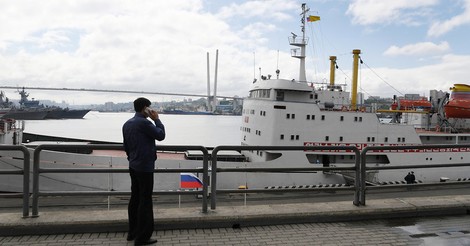Your podcast discovery platform
Curious minds select the most fascinating podcasts from around the world. Discover hand-piqd audio recommendations on your favorite topics.

piqer for: Globalization and politics Global finds
I am an Australian freelance journalist focussing on conflicts, politics, and warzones around the world. I have been working as a journalist for over 5 years, having reported from Australia, Germany, China, Egypt, Palestine, and Ukraine. I am especially interested in the way that new technologies are being used in conflict zones in unexpected and often disturbing ways. During my time working as a journalist, I also co-founded open-source war reporting site Conflict News.
North Koreans In Russia Work 'Basically In The Situation Of Slaves'
Lost amid the focus on North Korea's missile tests and nuclear program is the downright shocking way the country treats its own people. Inside the so-called 'workers paradise' of the Democratic People's Republic of Korea, the Kim regime has created a modern-day analog of London in Orwell's Nineteen Eighty-Four. Oppression is on such a great scale that many citizens of North Korea would do almost anything to get out.
Some of these chose the dangerous path of defection, putting their lives, and those of their families, at risk. But yet there is one easier way out of North Korea if you are desperate enough: manual labor in Russia.
Tens of thousands of North Koreans now work as manual laborers in Russia, many working in far-flung construction projects and logging camps. Their treatment has been described as slave-like, and deaths are alarmingly common. Curiously, closer to North Korea, in the Russian city of Vladivostok, these workers are also used for more smaller scale construction and household service roles. Conditions here for North Koreans are somewhat better than they are elsewhere in Russia, but nonetheless, their lives are controlled by their minders, and a large fraction of their wages are taken by the North Korean government — a valuable source of foreign currency for the rogue state.
Andrew Higgins' article for the New York Times takes an in-depth look at the work of these laborers and the often miserable lives they live. As well, it contains revealing interviews with some of the Russians who hire these laborers, and their thoughts on the situation. Finally, it reveals a disturbing and overlooked point — no matter how bad the conditions are for these laborers, most still view it as better than life in North Korea.
